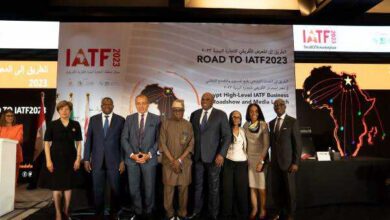
Deposit Money Banks (DMBs) have started monitoring accounts of loan defaulters with a view to enforcing a debt of N1.4 trillion on borrowers that signed the Global Standing Instructions (GSIs) clause.
The Trumpet learnt that the GSIs policy authorised banks to debit accounts of chronic loan defaulters in any bank in Nigeria to recover debts or settle defaults, just as the Central Bank of Nigeria (CBN) data showed that 5.31 per cent of the N26.1 trillion credit to the economy representing N1.4 trillion are Non-Performing Loans (NPLs) being monitored for the GSI sanctions.
A top banker, who is a Regional Director in a mid-level bank told The Trumpet that the country’s banks are reviewing credits in their balance sheets to ascertain delinquent loan defaulters with a view to enforce the GSIs Policy on defaulting accounts.
“The banks are already preparing lists of short and long terms loans which expired in June 2022 ending. The debit on the defaulting accounts that signed the GSIs clause will start by next week in many of the banks,” he said.
Read Also: Super Falcons qualify for 2023 FIFA World Cup
According to him, the GSIs implementation gained momentum among banks after the CBN follow-up circular in January 2022, which stipulated that the frequency of recovery attempts via the platform will be continuous and unrestricted.
He said the GSI automated loan recovery feature applicable to all loans in the industry is now perpetually in place throughout the tenor of the loan or until the loan is fully repaid.
Speaking on this issue recently, CBN Deputy Governor of CBN, Kingsley Obiora, said total flow of credit to the economy increased to N26.10 trillion in April 2022 from N21.45 trillion in April 2021, representing an increase of 21.66 percent.
Obiora explained that some sectors with increased credits include, manufacturing, consumer credit and general consumer, Information and Communications Technology (ICT), agriculture and others.
He added that the Non-Performing Loans (NPLs) ratio stood at 5.31 per cent at the end of April 2022, slightly above the prudential threshold of 5.00 per cent.
“It was however an improvement from 5.89 per cent at the end of April 2021, reflecting recoveries, restructuring of facilities and sound management practices by Other Depository Organisations (ODOs), he said recently in his notes to members of the Monetary Policy Committee (MPC).

Governor of CBN, Godwin Emefiele, who backed the GSIs policy, said debtors must repay their loans, stressed that the CBN would not allow people to borrow money and refuse to pay, adding: “That era has gone. If you borrow money and refuse to pay, we will take your money wherever you keep it.”
He added that the initiative was conceived to address the recurring instances of wilful loan defaults in the banking industry to identify and watch-list recalcitrant loan defaulters, enhance recovery from eligible and funded accounts in the industry and improve credit repayment culture.
“The GSIs mandate authorises recovery of amounts specified by the bank from accounts maintained by the borrower in all financial institutions. It also empowers banks and other financial institutions to debit accounts of chronic loan defaulters in any bank within the country to ease the growth of NPLs in the country,” he said.




